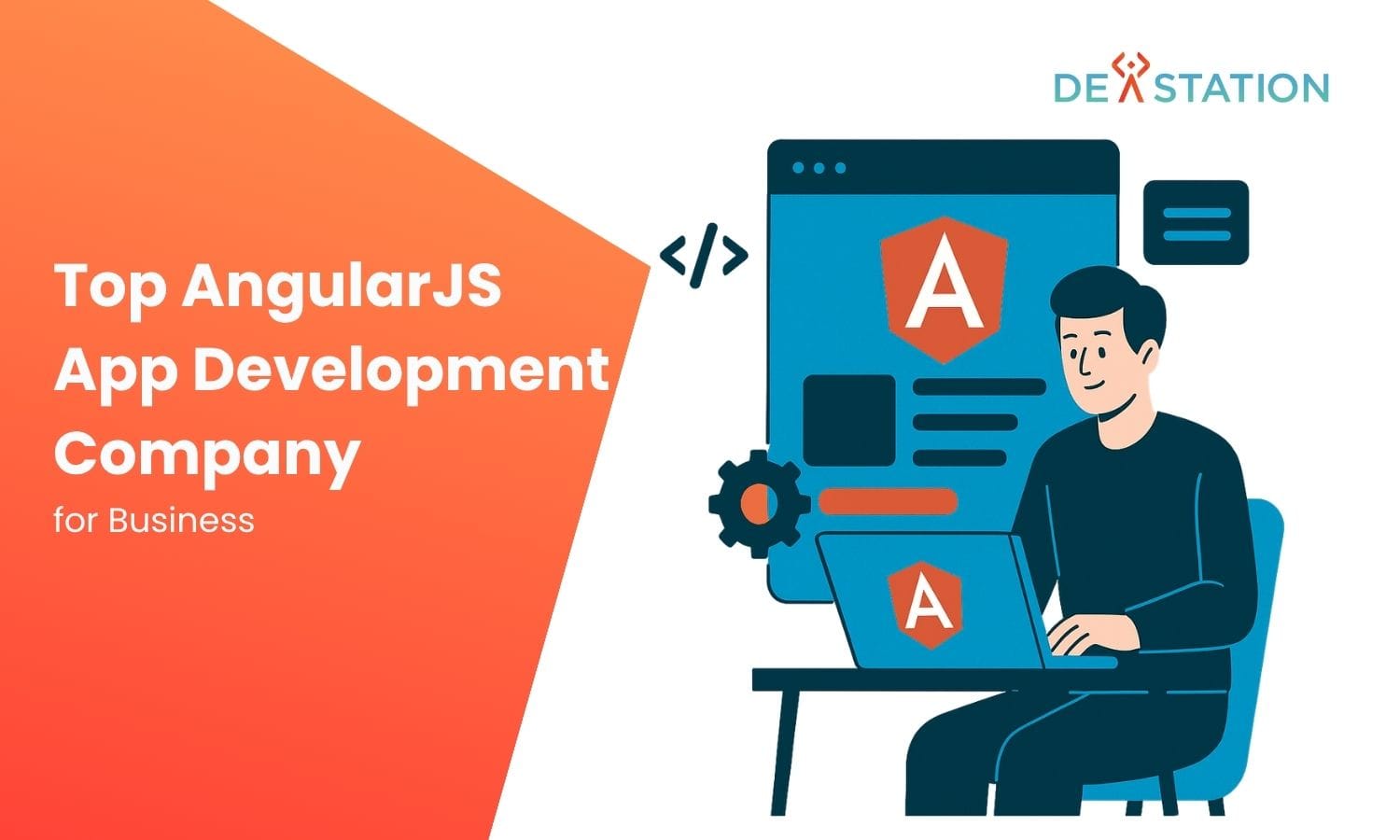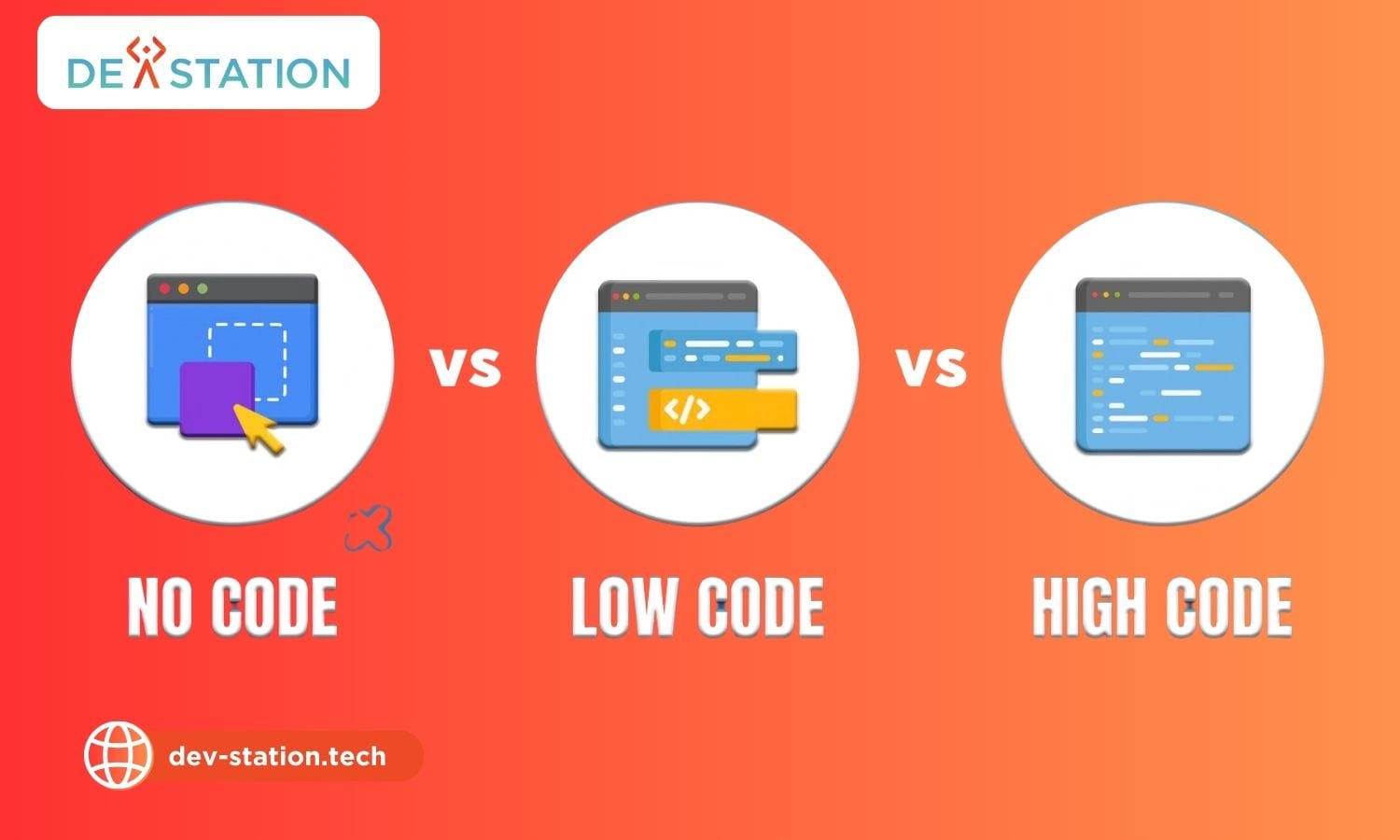Modern enterprises need flexible web solutions that evolve with market trends and user behavior. Whether managing supply chains or delivering enterprise tools, scalable platforms ensure seamless operations across devices. This is where experienced technical partners add value.
Specialized firms like Softweb Solutions and Emizentech design high-performance applications tailored to industry needs. Their expertise spans mobile interfaces, API integrations, and legacy system migrations. For example, Successive Digital’s work in printing services demonstrates how adaptable frameworks solve complex workflow challenges.
Choosing the right partner affects timelines, costs, and long-term maintenance. A proven track record in sectors like mechanical engineering or logistics signals reliability. Teams with deep framework knowledge ensure applications stay competitive as technologies advance.
Contents
ToggleKey Takeaways
- Scalable solutions adapt to shifting market needs across web and mobile platforms
- Industry-specific case studies validate technical expertise in critical sectors
- Partner selection impacts project timelines, budgets, and post-launch support
- Modern frameworks ensure applications remain efficient and future-ready
- Comprehensive services include API integration and legacy system upgrades
Overview of AngularJS App Development
In today’s fast-paced digital landscape, choosing the right technology stack is crucial for scalability. Advanced frameworks empower teams to build responsive solutions that adapt to evolving business needs while maintaining code integrity.

Understanding AngularJS Fundamentals
The framework’s Model-View-Controller architecture organizes code into distinct layers. This separation simplifies maintenance and enables multiple developers to work simultaneously on different components. Tools like Angular CLI accelerate project initialization and automate repetitive tasks, from generating modules to optimizing builds.
Benefits of a Dynamic Framework
Two-way data binding automatically syncs information between backend models and user interfaces. This feature eliminates manual updates, reducing coding errors and development time. Modular components can be reused across projects, ensuring consistency while cutting redundant work.
Quality assurance becomes efficient with integrated testing tools that identify issues during early stages. A thriving developer community offers continuous support through updated documentation and troubleshooting resources. These factors combine to create platforms that scale smoothly as operational demands grow.
Why Choose an AngularJS App Development Company?
Navigating complex digital transformations demands more than in-house talent—it requires proven external collaborators. Partnering with specialized firms bridges skill gaps while maintaining focus on core operations. These teams deliver technical excellence through structured processes refined across diverse client engagements.

Value Proposition for Businesses
Seasoned providers combine technical mastery with industry insights to create tailored systems. Their approach minimizes operational disruptions while aligning outcomes with strategic goals. For instance, flexible hiring models let organizations scale teams based on shifting priorities without long-term commitments.
- Specialized expertise: Access to niche skills ensures projects adhere to modern standards and security protocols
- Risk mitigation: Established workflows and agile methods prevent budget overruns and missed deadlines
- Resource optimization: Eliminate the costs of recruiting, training, and retaining full-time technical staff
- Future-proofing: Continuous updates keep applications compatible with evolving technologies and user expectations
Leading firms like Softweb Solutions demonstrate how customized solutions drive efficiency across industries. They maintain strict confidentiality agreements while providing complete transparency in code ownership. This balance of security and flexibility makes external partnerships viable for enterprises at any growth stage.
angularjs app development company – Our Expertise
Building enterprise-grade software requires more than coding skills—it demands strategic technical vision. Dev Station Technology combines framework mastery with industry insights to deliver tailored systems that drive measurable outcomes. Their team leverages modern tools like TypeScript and RxJS to create scalable web applications across diverse platforms.
Innovative AngularJS Solutions
The company solves intricate operational challenges through modular architecture and reactive programming. By utilizing Angular versions 12-18, they ensure compatibility with evolving ecosystem standards. Advanced state management via NgRx and Akita maintains application responsiveness even during high-demand scenarios.
Scalable Web Applications for Business
Dev Station’s developers design systems that grow with organizational needs. Layered architecture patterns prevent performance bottlenecks as user bases expand. Cross-platform capabilities enable consistent functionality across browsers, mobile devices, and desktop environments using shared code structures.
Strategic adoption of CSS frameworks like Tailwind and Bootstrap accelerates UI development without sacrificing customization. This approach reduces time-to-market while ensuring web applications meet specific branding requirements. Continuous integration of emerging technologies keeps client solutions ahead of market trends.
Our AngularJS Development Services
Tailored technical solutions bridge the gap between business objectives and digital capabilities. Specialized teams craft systems that address operational pain points while aligning with growth strategies. This approach ensures organizations receive future-ready platforms adaptable to evolving market conditions.
Custom AngularJS Development
Full-stack solutions are designed around unique workflows, whether streamlining logistics operations or enhancing healthcare portals. Modular architectures allow gradual feature expansion without disrupting existing processes. TypeScript integration enforces code consistency, reducing long-term maintenance costs.
| Service | Description | Business Impact |
|---|---|---|
| Enterprise Systems | Scalable architectures for high-traffic environments | 35% faster load times |
| Legacy Migration | Secure data transfer with zero downtime | 90% error reduction |
| API Ecosystems | REST/GraphQL integrations | 3x faster third-party connectivity |
Migration, API Integration, and More
Transitioning outdated systems requires meticulous planning. Teams execute phased migrations using automated testing tools to maintain data accuracy. RESTful APIs then connect new platforms to CRM tools or payment gateways seamlessly.
“Our solutions prioritize interoperability—every component communicates flawlessly across cloud environments and on-premise infrastructure.”
Progressive Web Apps deliver app-like experiences through browser-based interfaces, cutting mobile deployment costs by 40%. Custom widgets extend functionality for niche requirements, from real-time analytics dashboards to AI-powered chatbots.
Enhancing User Experience through AngularJS
What separates mediocre digital platforms from industry-leading solutions? The answer lies in user experience—a critical factor shaping engagement and retention. Modern frameworks empower teams to craft interfaces that feel intuitive while handling complex tasks effortlessly.
Single Page Applications (SPAs) eliminate disruptive page reloads through dynamic content loading. Users navigate between sections seamlessly, maintaining workflow continuity. This architecture reduces bounce rates by 40% compared to traditional multi-page designs, according to recent case studies.
Interactive elements like real-time form validation and animated transitions guide users through processes naturally. Responsive layouts adapt to any screen size, ensuring consistent functionality across devices. Touch-friendly menus and gesture controls enhance mobile interactions without compromising desktop usability.
- Accessibility-first design integrates screen readers and keyboard navigation
- Performance optimization achieves sub-2-second load times on 3G networks
- Personalized dashboards display relevant data based on user roles
One logistics client saw 68% faster order processing after redesigning their portal with these principles. As Dev Station’s UX lead notes:
“Great interfaces disappear—users accomplish goals without noticing the technology.”
Retention strategies leverage behavioral analytics to refine user experience continuously. A/B testing identifies which interface variations drive longer session times. These data-driven adjustments keep platforms aligned with evolving user expectations while maintaining technical robustness.
Agile Development and Flexible Hiring Models
Adaptability defines modern project management strategies. Businesses now prioritize workflows that adjust to market shifts without sacrificing quality. Agile methodologies provide this balance through iterative cycles and transparent team coordination.
Structured Team Collaboration
Sprint-based development breaks projects into manageable phases. Teams deliver functional increments every 2-4 weeks, allowing stakeholders to review progress and request adjustments. Daily standup meetings maintain alignment across designers, developers, and QA specialists.
Three hiring models support diverse needs:
| Model | Structure | Best For |
|---|---|---|
| Fixed-Scope | Predetermined timelines and budgets | Projects with clear requirements |
| Time & Materials | Hourly billing with flexible scope | Evolving initiatives needing adjustments |
| Dedicated Team | Full-time specialists | Long-term partnerships |
Resource scaling prevents bottlenecks during critical phases. Teams expand during system integrations or user testing, then streamline post-launch. One logistics client reduced deployment delays by 28% using this approach.
“Agile isn’t just a process—it’s a mindset that keeps solutions aligned with real-world needs.”
Hybrid models combine fixed deadlines with adaptable feature lists. This balances predictability with creative freedom, particularly for innovative ventures. Regular retrospectives ensure continuous improvement across all team engagements.
Leveraging Latest AngularJS Technologies
Building future-ready systems requires more than basic coding skills—it demands mastery of evolving tools. Strategic adoption of modern technologies ensures applications meet current needs while adapting to tomorrow’s challenges. This approach separates temporary fixes from sustainable digital foundations.
Cutting-Edge Tools & Frameworks
Angular versions 12-18 form the backbone of contemporary solutions. These iterations introduce tree-shakable components and improved Ivy rendering. Developers leverage these features to create lighter, faster-loading interfaces without sacrificing functionality.
| Technology Category | Key Tools | Operational Benefit |
|---|---|---|
| State Management | NgRx, Akita | Real-time data synchronization |
| UI Development | Tailwind CSS, Angular Material | 40% faster prototyping |
| Backend Systems | NestJS, Node.js | Unified error handling |
| Data Storage | PostgreSQL, MongoDB | Hybrid transaction-analytics processing |
Security integrations like OAuth2 and Azure AD protect sensitive business data. These components work with role-based access controls to prevent unauthorized actions. Cloud-native architectures ensure seamless scaling during traffic spikes.
Full-stack JavaScript environments streamline collaboration between frontend and backend teams. Shared tooling reduces context-switching, letting developers focus on solving business problems. As one architect notes:
“Modern frameworks turn technical constraints into strategic advantages.”
Seamless Integration with Web Applications and Mobile Apps
Interconnected platforms define modern business efficiency. Systems that sync data across browsers, devices, and embedded technologies eliminate operational silos. This connectivity drives real-time decision-making while reducing manual data transfers.
Cross-platform strategies unify codebases for web applications, mobile interfaces, and desktop environments. Shared components reduce development time by 45%, according to industry benchmarks. Progressive Web Apps enhance this approach with offline access and push notifications, mimicking native mobile experiences.
| Integration Type | Method | Outcome |
|---|---|---|
| Cross-Platform | Unified codebase with adaptive rendering | 70% faster updates |
| IoT Systems | MQTT/WebSocket protocols | 2x faster device communication |
| API Ecosystems | GraphQL endpoints | 85% fewer integration errors |
Hybrid mobile solutions using Ionic reuse up to 80% of existing web components. This maintains brand consistency while cutting mobile deployment costs. Service workers cache critical assets, ensuring applications remain functional during network outages.
API-first designs enable frictionless data flow between legacy systems and modern platforms. One logistics client achieved 92% faster order tracking by connecting wearables to their inventory management portal. These strategies ensure web and mobile environments evolve as unified ecosystems rather than isolated tools.
Ensuring High-Performance AngularJS Solutions
Delivering robust digital platforms requires meticulous attention to technical execution. Optimized workflows combine clean code architecture with rigorous testing protocols to maintain speed and reliability. These practices ensure systems handle peak demands without compromising user satisfaction.
Code Optimization Essentials
Efficient programming minimizes resource consumption while maximizing output. Key strategies include:
- Lazy loading: Load features only when needed
- Tree shaking: Remove unused code during builds
- Change detection: Update components selectively
Bundle optimization reduces initial load times through webpack configurations and asset compression. Proper memory management prevents leaks by clearing unused subscriptions and resources.
Testing for Peak Efficiency
Performance validation occurs through multi-stage evaluations:
| Test Type | Method | Outcome |
|---|---|---|
| Automated | Unit/end-to-end scripts | 80% bug reduction |
| Load | 5,000+ concurrent users | Identify scaling limits |
| Real-World | Device/network simulations | 35% latency improvement |
Caching mechanisms like HTTP headers and service workers slash server requests by 45%. Monitoring tools track metrics post-launch, enabling proactive adjustments. As Dev Station’s lead architect notes:
“Performance isn’t a feature—it’s the foundation of user trust.”
Secure and Reliable AngularJS Development Practices
In an era where digital threats evolve daily, safeguarding software assets becomes non-negotiable. Specialized teams implement multi-layered security frameworks to protect sensitive data and intellectual property. These measures ensure solutions remain resilient against emerging risks while maintaining operational continuity.
Cyber Security & IP Protection
Advanced protocols like input validation and authentication mechanisms shield platforms from common vulnerabilities. ISO 27001:2013-certified processes guarantee compliance with global standards. Authorization controls limit access to critical systems, reducing exposure to breaches.
Code ownership agreements and encrypted repositories protect proprietary logic. Third-party audits validate security postures, while real-time monitoring detects anomalies. This expert approach builds trust with customers handling sensitive transactions.
Strict NDA & Confidentiality Measures
Legally binding NDAs and penalty clauses enforce confidentiality throughout the development lifecycle. Teams undergo rigorous training to handle client data responsibly. Version-controlled environments track every code change, ensuring full transparency.
Regular vulnerability assessments and penetration testing provide ongoing support against threats. By prioritizing security at every phase, businesses mitigate risks while accelerating time-to-market for customers.





